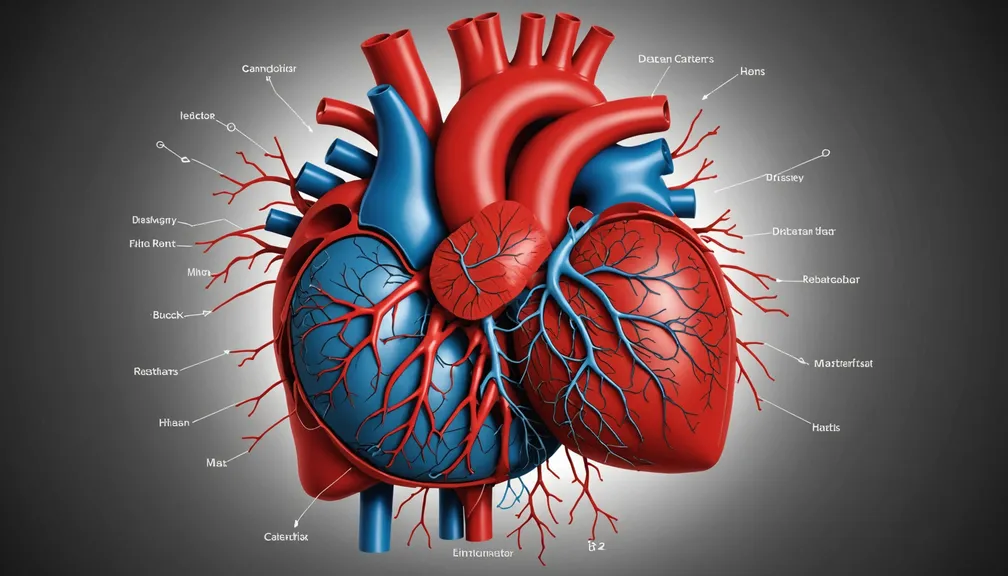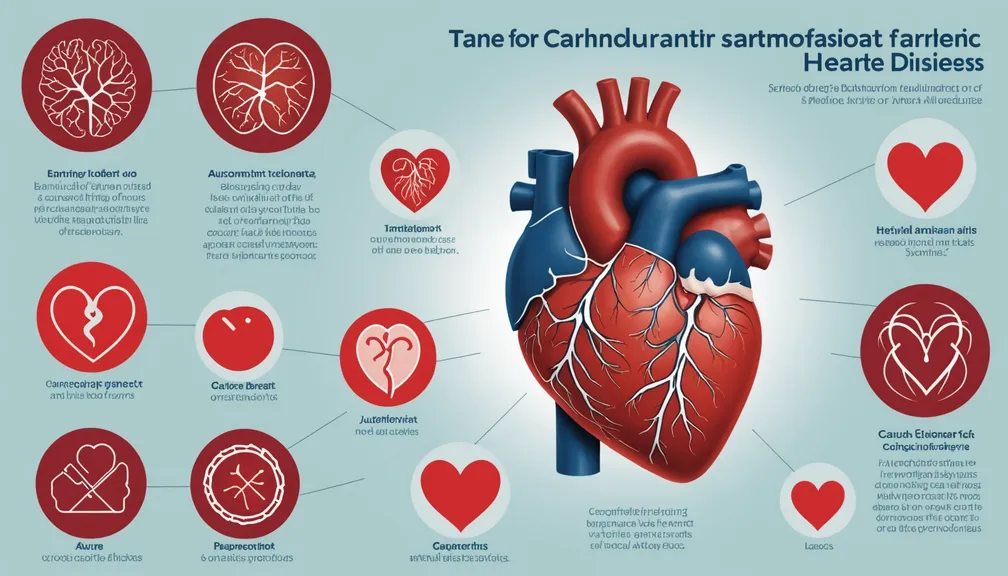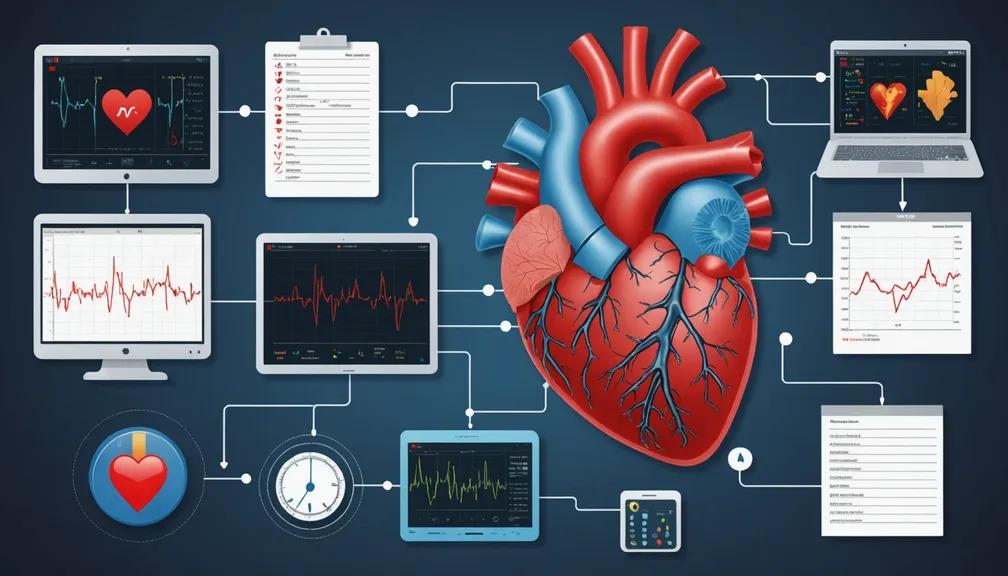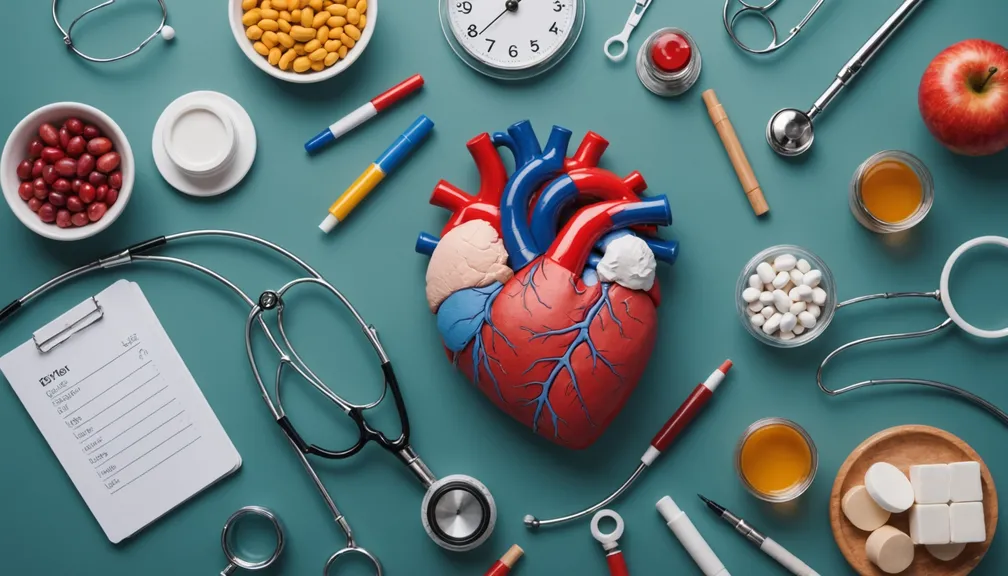Treatment Options: From Medications to Surgical Interventions
Understanding the various treatment options available for rare cardiovascular diseases can empower you and your loved ones to make informed decisions about your health. This lesson explores the range of treatments, from medications to surgical interventions, that can help manage and improve these uncommon heart and blood vessel conditions.
1. Medication-Based Treatments
Medications are often the first line of defense in managing rare cardiovascular diseases. They can help control symptoms, slow disease progression, and reduce the risk of complications.
a. Types of Medications
- Beta-Blockers: Help reduce heart rate and lower blood pressure, easing the heart's workload.
- ACE Inhibitors: Relax blood vessels, making it easier for the heart to pump blood.
- Diuretics: Remove excess fluid from the body, decreasing blood pressure and reducing swelling.
- Antiarrhythmics: Manage irregular heartbeats to maintain a regular heart rhythm.
- Anticoagulants: Prevent blood clots, reducing the risk of strokes and other complications.
b. How They Work
Each type of medication targets specific aspects of cardiovascular function:
- Beta-Blockers decrease the heart rate and the force of contraction, which can help manage conditions like cardiomyopathy.
- ACE Inhibitors expand blood vessels, lowering blood pressure and decreasing the heart's workload.
- Diuretics help eliminate excess salt and water, preventing fluid buildup in the body.
- Antiarrhythmics stabilize the heart's electrical activity, ensuring a steady heartbeat.
- Anticoagulants reduce the blood's ability to clot, which is crucial in preventing strokes.
c. Possible Side Effects
While medications can be highly effective, they may also come with side effects. Common side effects include:
- Beta-Blockers: Fatigue, cold hands, and dizziness.
- ACE Inhibitors: Persistent cough, elevated blood potassium levels, and low blood pressure.
- Diuretics: Frequent urination, dehydration, and electrolyte imbalances.
- Antiarrhythmics: Nausea, dizziness, and potential impacts on liver function.
- Anticoagulants: Increased risk of bleeding and bruising.
Always discuss potential side effects with your healthcare provider to ensure the benefits outweigh the risks for your specific condition.
2. Lifestyle and Supportive Therapies
In addition to medications, lifestyle changes and supportive therapies play a crucial role in managing rare cardiovascular diseases.
a. Diet and Exercise
- Balanced Diet: Focus on low-sodium, low-fat, and nutrient-rich foods to support heart health.
- Regular Exercise: Engaging in appropriate physical activity can strengthen the heart and improve overall well-being. Consult your doctor to create a safe exercise plan tailored to your condition.
b. Mental Health Support
Living with a rare cardiovascular disease can be challenging. Support from mental health professionals, such as counselors or support groups, can provide emotional assistance and coping strategies.
3. Minimally Invasive Procedures
When medications and lifestyle changes are not sufficient, minimally invasive procedures may be recommended to address specific issues within the cardiovascular system.
a. Explanation of Procedures
- Catheter Ablation: A procedure to destroy small areas of heart tissue that may be causing irregular heartbeats.
- Stent Placement: Involves inserting a small tube to keep blood vessels open, improving blood flow.
b. When They Are Needed
These procedures are typically recommended when medications alone cannot adequately control symptoms or when there is a significant risk of complications, such as severe arrhythmias or blockages in blood vessels.
4. Surgical Interventions
Surgery may be necessary for more complex or severe cases of rare cardiovascular diseases. These interventions aim to repair or replace damaged heart structures or blood vessels.
a. Types of Surgeries
- Heart Valve Replacement or Repair: Fixing or replacing faulty heart valves to ensure proper blood flow.
- Coronary Artery Bypass Grafting (CABG): Creating new pathways for blood to reach the heart muscle by bypassing blocked arteries.
- Implantable Devices: Such as pacemakers or defibrillators, which help regulate heart rhythms.
b. What to Expect
Surgical procedures vary based on the specific condition and required intervention. Pre-surgical evaluations, recovery times, and potential risks should be thoroughly discussed with your surgical team to prepare and understand the process.
5. Advanced Treatments
For certain rare cardiovascular diseases, advanced treatments may offer additional options when standard treatments are insufficient.
a. Transplant Options
- Heart Transplant: Replacing a diseased heart with a healthy donor heart in cases of severe heart failure.
- Vascular Transplants: Transplanting healthy blood vessels to replace damaged ones.
b. Cutting-Edge Therapies
Emerging treatments, such as gene therapy or regenerative medicine, are being researched to address the underlying causes of rare cardiovascular diseases. These therapies hold promise for the future but may still be in experimental stages.
6. Multidisciplinary Care Team
Managing a rare cardiovascular disease often requires a team of specialized healthcare professionals working together to provide comprehensive care.
a. Types of Doctors and Health Professionals
- Cardiologist: A specialist in heart and blood vessel conditions who oversees treatment plans.
- Cardiothoracic Surgeon: Performs surgical procedures on the heart and chest.
- Genetic Counselor: Assists in understanding any hereditary aspects of the disease.
- Nurse Practitioner or Physician Assistant: Provides ongoing care and support.
- Physical Therapist: Helps design and implement exercise programs to improve heart health.
- Dietitian: Offers guidance on maintaining a heart-healthy diet.
- Mental Health Professional: Supports emotional well-being and coping strategies.
Having a coordinated care team ensures that all aspects of the disease are addressed, enhancing the effectiveness of treatment and improving quality of life.
7. Finding the Right Treatment Plan
Creating an effective treatment plan involves collaboration between you, your loved ones, and your healthcare team.
a. Personalized Approach
- Assessment: Your doctor will evaluate your specific condition, symptoms, and overall health to tailor treatments to your needs.
- Monitoring: Regular check-ups and diagnostic tests help monitor the effectiveness of treatments and make necessary adjustments.
- Communication: Open communication with your healthcare team is essential for addressing concerns, understanding treatment options, and making informed decisions.
b. Actionable Steps
- Stay Informed: Educate yourself about your condition and treatment options to participate actively in your care.
- Follow Treatment Plans: Adhere to prescribed medications, lifestyle recommendations, and scheduled appointments.
- Seek Support: Utilize available resources, such as support groups and counseling, to navigate the challenges of living with a rare cardiovascular disease.
By taking an active role in your treatment plan and working closely with your healthcare team, you can manage your condition effectively and maintain a better quality of life.






